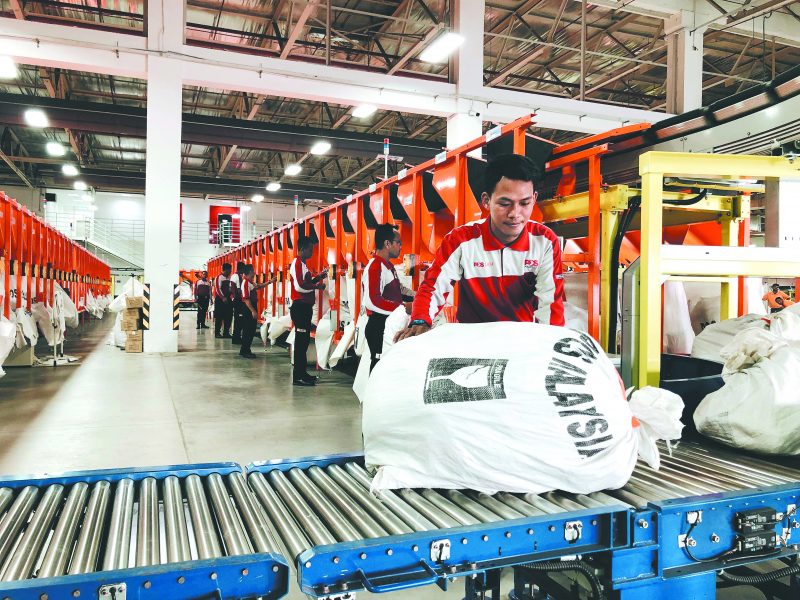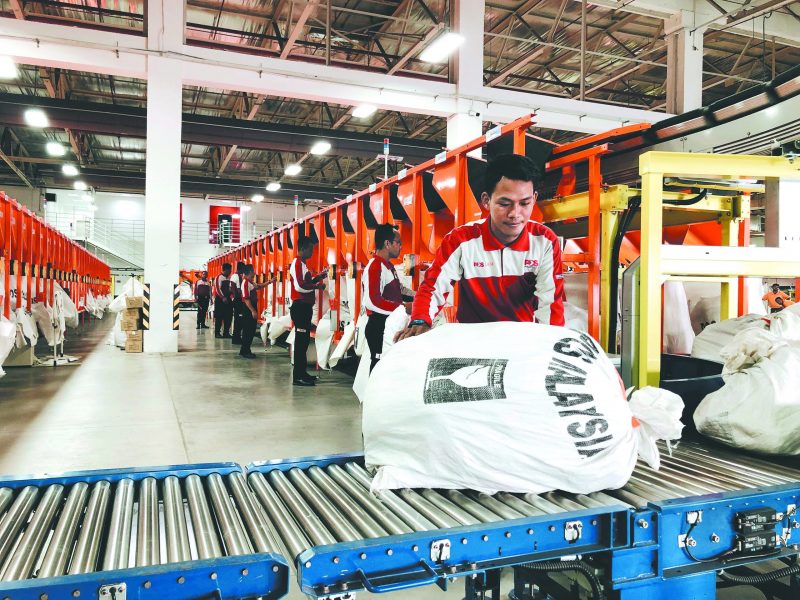
This site
is mobile
responsive
COVID-19 – An unexpected opportunity
The COVID-19 global pandemic has accelerated the need for digital transformation and fast tracked the adoption of automation across various industries in Malaysia. With the boom in e-commerce activities, players in logistics and supply chain solutions expect higher goods’ volumes and demand for e-fulfillment services, as consumer behaviour and buying patterns switches from offline to online.
POS Malaysia Berhad experienced a drastic increase in e-commerce parcel volumes of approximately 35 per cent during the first Movement Control Order (MCO) last year, due to the rise in demand for courier services 2020.
Similarly, during the MCO in 2021 and Chinese New Year festive season, parcel volume surged up to 800,000 parcels a day, from an average of 487,000 parcels daily.
Compounded by the unforeseen surge, the Company is committed to upgrading its existing facilities through the adoption of automation and ICT systems to enhance its services and better serve its customers.
The upgrading was already in plan since 2017 when POS Malaysia decided to expand its existing warehouse facilities with digital elements and established its Integrated Parcel Centres (IPC) in Shah Alam and Kuala Lumpur International Airport (KLIA), outfitting it with automated sorting systems for more efficient operations.
The RM210 million investment also paved for an addition of more than 400 jobs in positions such as administrative staff, technical personnel and generalists.
From a humble beginning to diversified giant
POS Malaysia traces its history to the early 1800s when the postal service was established in the Straits Settlements comprising Penang, Malacca and Singapore. In 1992, the Postal Services Department was corporatised as POS Malaysia and the company was listed on Bursa Malaysia in 2001.
In 2011, the sovereign wealth fund Khazanah Nasional Bhd divested 32.2 per cent of its stake in the Company to the DRB-HICOM Group. POS Malaysia expanded by diversifying into other services through its subsidiaries such as POS Logistics (logistic arm), POS ACE (air cargo) (renamed World Cargo Airlines in August 2020) as well as POS Aviation (ground and cargo handling; inflight catering; aircraft maintenance and engineering services).


By 2016, the POS Malaysia Group was established as a dynamic postal (mail, retail, courier, and international), logistics, aviation, financial and supply chain solutions provider with the largest delivery and touchpoint network in Malaysia.
The Group also offers an extensive network of retail experience through its core business segments while connecting with over 200 postal operators globally. Its growth also supported the South East Asia’s rapidly expanding crossborder e-commerce businesses.
The evolution of this local homegrown company to embark on technological solutions with the elements of Industry 4.0 to keep in tandem with the industry’s demands has been significant. The technology upgrading is essential for companies, such as POS Malaysia to position themselves in the global market and compete with international players, particularly in today’s fast-paced fulfillment solutions segment.
National e-commerce agenda
The Government launched the National ecommerce Strategic Roadmap (NESR) in 2016 to promote and enhance e-commerce related activities in Malaysia. The launch of NESR laid the foundation in attracting Alibaba Co. to establish its first Digital Free Trade Zone (DFTZ) outside China at Kuala Lumpur Air Cargo Terminal 1 (KACT1). The establishment of KACT1 positioned Malaysia on the radar of global e-commerce players, making the country a potential regional e-fulfillment hub. POS Malaysia Berhad, a company with an established supply chain solution experience, was appointed as the main fulfillment service provider to operate KACT1 and fulfill e-commerce related parcels both inbound and outbound.
International, as well as domestic companies are encouraged to establish their regional fulfillment operations in Malaysia to serve global supply chain activities worldwide. Malaysia’s strategic geographical location with its increasing adoption of technology enables seamless and efficient supply chain processes.

Source: MIDA e-Newsletter February 2021